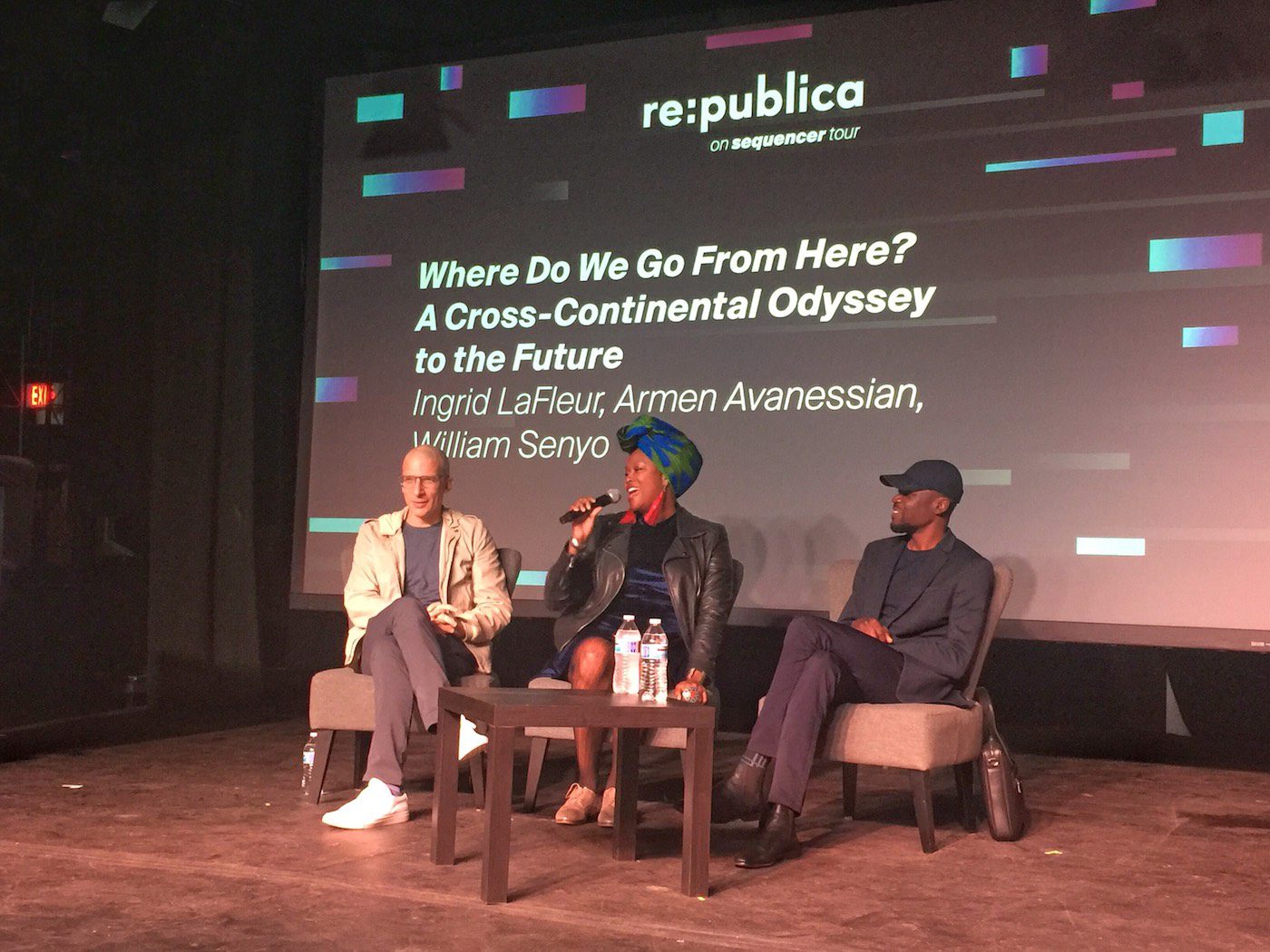re:publica Berlin is Europe’s largest internet and digital society conference. Since October 2018 it has been on a “Sequencer Tour” of the US, and when it stops in Portland, Oregon this October the curator, pleasure activist, and Afrofuturist Ingrid LaFleur is one of the speakers. Tash Moore speaks to LaFleur about creating decentralized autonomous communities as a way to attain true democracy, and Afrofuturism’s political potential.

re:publica Sequencer Tour Detroit 2019 with Ingrid LaFleur (center), Armen Avanessian (left), William Senyo (right). Photo: Tash Moore
C&: The Sequencer Tour 2019 aims to explore and engage the possibilities of emerging tech to collectively build the future. How do you see tech empowering Black, indigenous, and people of color going forward?
Ingrid LaFleur: Technology of all kinds has historically been used to build economic and social justice movements of Black and Brown people. I don’t think that changes now. Just as the cell phone with video capabilities has been able to record violence instituted on Black and Brown bodies and the earth, we will always find ways to make any and all technologies useful in order to keep our communities informed and safe. What we need to focus on is ensuring distribution of information and access to emerging technologies so that we can innovate through programming and hopefully create new tech. Then we will be able to build equitable futures faster. This is important to me because I believe we are in a state of emergency – the need to decolonize minds and attain justice in all areas of our lives is urgent.
C&: How do you see blockchain technology transforming Detroit? For instance, you’ve advocated for a universal basic income locally. How might diversifying access to spending through technology change Detroit for the better?
IL: There are many advantages for Detroit in adopting blockchain technology and cryptocurrency. Voting through blockchain can ensure fair results by ending the constant tampering and miscounting of paper ballots. Because blockchain technology is essentially a digital ledger that records transactions and uses cryptography to remain secure and immutable, we can also have the city’s budget on the blockchain, with all spending tracked and available for residents to access and view. What I’m most excited about is the creation of decentralized autonomous communities (DAC), which are essentially digital cooperatives. Through a DAC, members are able to not only conceptualize a digital currency based on their values but also control the economy around it. I believe DACs are the next step in attaining true democracy.
C&: You have defined access as “the first step.” How would you expand Afrofuturism to those who are unfamiliar with its potential?
IL: Actually the first step is decolonizing the mind. Because we create from the mind, we must ensure that it is not a place of bias and trauma. As far as Afrofuturism, it is important to understand that it is more than an aesthetic – it is a cultural and liberation movement informed by a set of principles used to engage people and the world in the past, present, and future. This positioning centers the Black body with the full understanding that liberation can only be attained when everyone from every background is decolonized and liberated. Afrofuturism then becomes a safe space for radical decolonizing and collaborative solution creation.
Re:publica Sequencer Tour 2019 takes place 11–12 October 2019 in Portland, US.
Ingrid LaFleur is a curator, pleasure activist and Afrofuturist. Her mission is to ensure equal distribution of the future, exploring the frontiers of social justice through new technologies, economies and modes of government.
Tash Moore is prolific Detroit booster, social entrepreneur and activist deeply passionate about promoting diversity & inclusion. She is coordinator of the 2019 C& Critical Writing Workshop in Detroit.
More Editorial